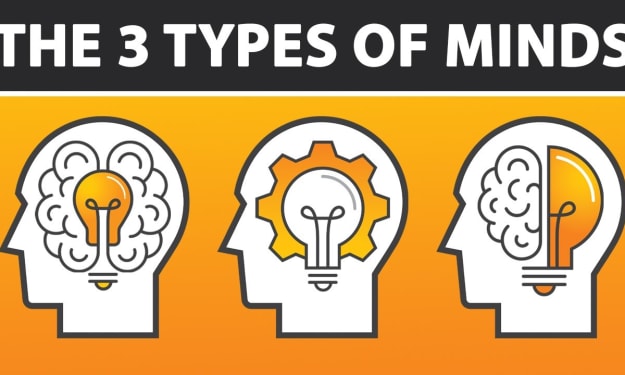10 Subconscious Behaviors That Make People Ignore You
Do people tend to ignore you, or maybe not take you as seriously as you’d like in social settings? If you’re nodding in agreement or shaking your head in frustration, rest assured that you are not the only one experiencing these feelings or thoughts. And while it can be disheartening to try to contribute to a conversation only to be met with blank stares - or brushed off entirely, it’s possible that you’re engaging in certain subconscious habits that are causing these reactions from others

10 Subconscious Behaviors That Make Others Ignore You
Do people tend to ignore you, or maybe not take you as seriously as you’d like in social settings? If you’re nodding in agreement or shaking your head in frustration, rest assured that you are not the only one experiencing these feelings or thoughts. And while it can be disheartening to try to contribute to a conversation only to be met with blank stares - or brushed off entirely, it’s possible that you’re engaging in certain subconscious habits that are causing these reactions from others! In this video, we highlight ten such behaviors and offer helpful tips to ensure that you’re being heard, loud and clear. Let’s get right to it!
Number 1 - Negative Body Language Nonverbal communication speaks volumes, often overshadowing our spoken words. And one common reason for being ignored is unintentionally displaying negative body language. When you exhibit closed-off gestures like crossed arms, avoiding eye contact, or displaying a tense or slouched posture, it sends a message that you are unapproachable or unengaged. This can lead others to dismiss you or overlook your presence as they may assume that you are not interested in participating or contributing to the conversation. For this reason, it is essential to be aware of your body language and strive to project open and welcoming signals to foster better communication and interpersonal connections.
Number 2 - Weak or Timid Voice The way you use your voice whether it’s the tone, volume, or clarity, can significantly impact how much others pay attention when you speak. A voice that’s too soft, hesitant, or difficult to understand can signal a lack of confidence or authority, and that can prompt others to ignore what you say. To improve your vocal delivery, practice speaking with a fuller, steadier tone and pronounce words more clearly even if it feels unnatural at first. Increasing your volume slightly can also help, just be mindful not to resort to yelling. Aim for a well-modulated voice that commands attention without being overbearing. By cultivating a stronger, more authoritative voice, you can convey more confidence and conviction in your message, increasing the likelihood of being heard and taken seriously by others.
Number 3 - Frequently Using Filler Words The frequent use of filler words such as “like,” “um,” and “you know” can give the impression that you lack confidence or haven’t put much thought into what you’re saying. Consequently, people may assume that you don’t have any valuable insight to contribute and may begin to disregard what you say. While eliminating filler words completely may not always be possible, you should strive to reduce their usage. Try to speak more deliberately and thoughtfully, making sure to choose your words carefully. By minimizing the use of filler words, you enhance the clarity and effectiveness of your communication; again, increasing the likelihood of being listened to and taken seriously.
Number 4 - Constantly Interrupting If you have a tendency to prioritize your own voice over listening to others, this behavior can result in people ignoring you. You see, by consistently interjecting and cutting off someone while they’re speaking, you convey a message that you don’t value their thoughts or opinions. It’s essential to allow people the space to express themselves and show interest in what they have to say. Ask meaningful follow-up questions and let them know that their thoughts and feelings are valued and appreciated. By honing your listening skills, you can foster stronger connections and decrease the likelihood of being ignored.
Number 5 - Not Contributing Anything to The Conversation It’s possible that people ignore you because maybe you're not being an engaging conversationalist. If your exchanges primarily revolve around small talk or you rarely open up about yourself, it can discourage others from wanting to maintain a connection with you. To alter this dynamic and increase your chances of capturing people’s attention, take a moment to evaluate your conversation skills. Consider if you are truly offering something meaningful in return. This way, you can make adjustments and improve your ability to connect with others on a deeper level.
Number 6 – Excessive Bragging It’s natural to feel a sense of pride in your accomplishments and have the urge to share them with others. However, constantly boasting about yourself has the potential to create a divide between you and other people. So, instead of solely focusing on yourself, consider actively investing in the lives of those around you. Ask about their experiences and show sincere curiosity. This approach creates an atmosphere of openness and receptiveness, allowing for deeper engagement and more meaningful conversations.
Number 7 - Always Complaining While it’s understandable to need an outlet to vent every once in a while, making complaining a habit can really put off others. Negativity has a contagious effect. It creates an unpleasant experience for everyone involved. To prevent this, try to shift your focus toward the positives. Cultivating optimism and spreading positive energy can be magnetic and attract others toward you. By embracing positivity, you can ensure that others will be less likely to ignore you.
Number 8 - Apologizing Too Much Apologizing too frequently, especially for insignificant reasons, sends the message that you lack confidence and are not worth listening to. When you apologize excessively, even before you speak, it creates a perception of weakness. Phrases like “sorry to bother you” or “I’m sorry if this sounds stupid” condition others to pretty much tune you out right from the beginning! If you want to increase the likelihood of being listened to by others, focus on expressing your thoughts and ideas with confidence and conviction, and save apologies for situations where you actually made a mistake.
Number 9 - Being Overly Critical It’s commendable that you genuinely care about the well-being of others and want the best for them. However, this mentality can sometimes result in excessive criticism, particularly if you focus only on their mistakes. Continuously criticizing others may lead people to perceive you as someone who only knows how to find fault, which in turn can cause them to ignore you, even if your intentions are good. Of course, I’m not suggesting that you should refrain from offering feedback or letting people learn from their mistakes. Constructive criticism is vital for personal growth. But, incorporating words of encouragement and giving compliments can help soften the impact of your critique. Finding a balance between criticism and support can establish healthier and more receptive communication.
Number 10 - Getting Distracted Easily When you spend more time scrolling through social media or responding to messages than you do actively participating in the conversation, it signals that you are not fully present. This behavior can make the other person feel like their presence or their words are not important. Being easily distracted can also hinder effective communication and lead to misunderstandings and misinterpretations, causing people to further disregard or ignore you.
If you want to be more engaging and show that you value the conversation, give the other person your undivided attention. This allows for a more meaningful conversation for both parties involved. In conclusion, it is important to be aware of the subconscious behaviors that may inadvertently push people away in social situations. By recognizing these habits, you can make a conscious effort to become more engaging and attentive so that you can foster stronger connections and create a positive impact in your interactions with others.






Comments
There are no comments for this story
Be the first to respond and start the conversation.